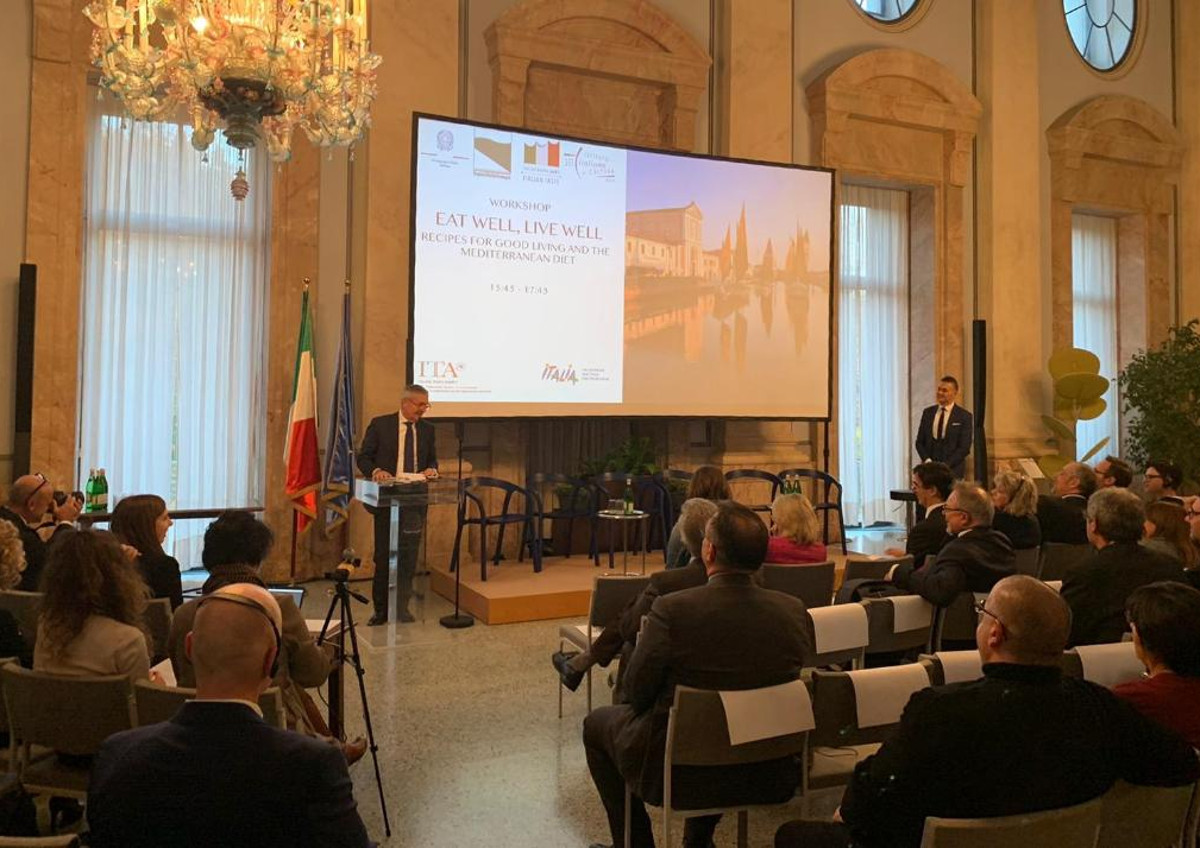
“The Nutriscore labeling method puts on the same level very different kinds of food and goes so far as to demonize the excellent products of the Mediterranean diet, celebrated throughout the world as the healthiest ones.” That is what Ivano Vacondio, president of Italy’s food industries association Federalimentare, said in Berlin during the “A Taste of Italy” event, organized at the Italian Embassy in together with the Emilia-Romagna Region.
“It makes no sense to discriminate a single food by giving it a red traffic light colour on the label – Vacondio added -. Foods should be considered healthy if they are part of a balanced diet and if they are consumed in the right measure. In this battle we hope to have at our side the German food industry, as well as those of other European countries, to avoid creating serious damage to our sector, without obtaining any advantage for people’s health.”
EAT WELL, LIVE WELL
Vacondio took part in a workshop attended by the president of the Emilia-Romagna Region, Stefano Bonaccini, entitled “Mangia bene, vivi bene: ricette per vivere bene e la dieta mediterranea” (Eat well, live well: recipes for living well and the Mediterranean diet). This is a diet praised for its nutritional characteristics because its carbon footprint is 40% lower than that of comparable diets. In fact it has given rise to a wide range of gastronomic elements, well balanced in terms of both nutritional and environmental sustainability.
FOR THE MEDITERRANEAN DIET AND AGAINST NUTRISCORE
“We are pleased to host Federalimentare here in Berlin,” said the Ambassador of Italy to Germany Luigi Mattiolo. Last June – during the European Week of Sustainable Development – the Italian Embassy in Berlin had already hosted, together with the Barilla Center for Food and Nutrition, a workshop on the Mediterranean diet – which saw the participation of more than 300 stakeholders from the world of food industry.
“An emblematic example of a sustainable diet, both for the individual and for the planet, the Mediterranean Diet was recognized in 2010 as a UNESCO World Heritage Site – Mattiolo said. Much more than a list of ingredients to be ingested, it is first and foremost a way of being together. Our Embassy is at the side of the Italian food industry to protect its uniqueness: both from unfair competition phenomena such as Italian Sounding, and from conditioning forms of labeling that aim to blame individual foods or certain ingredients.”
